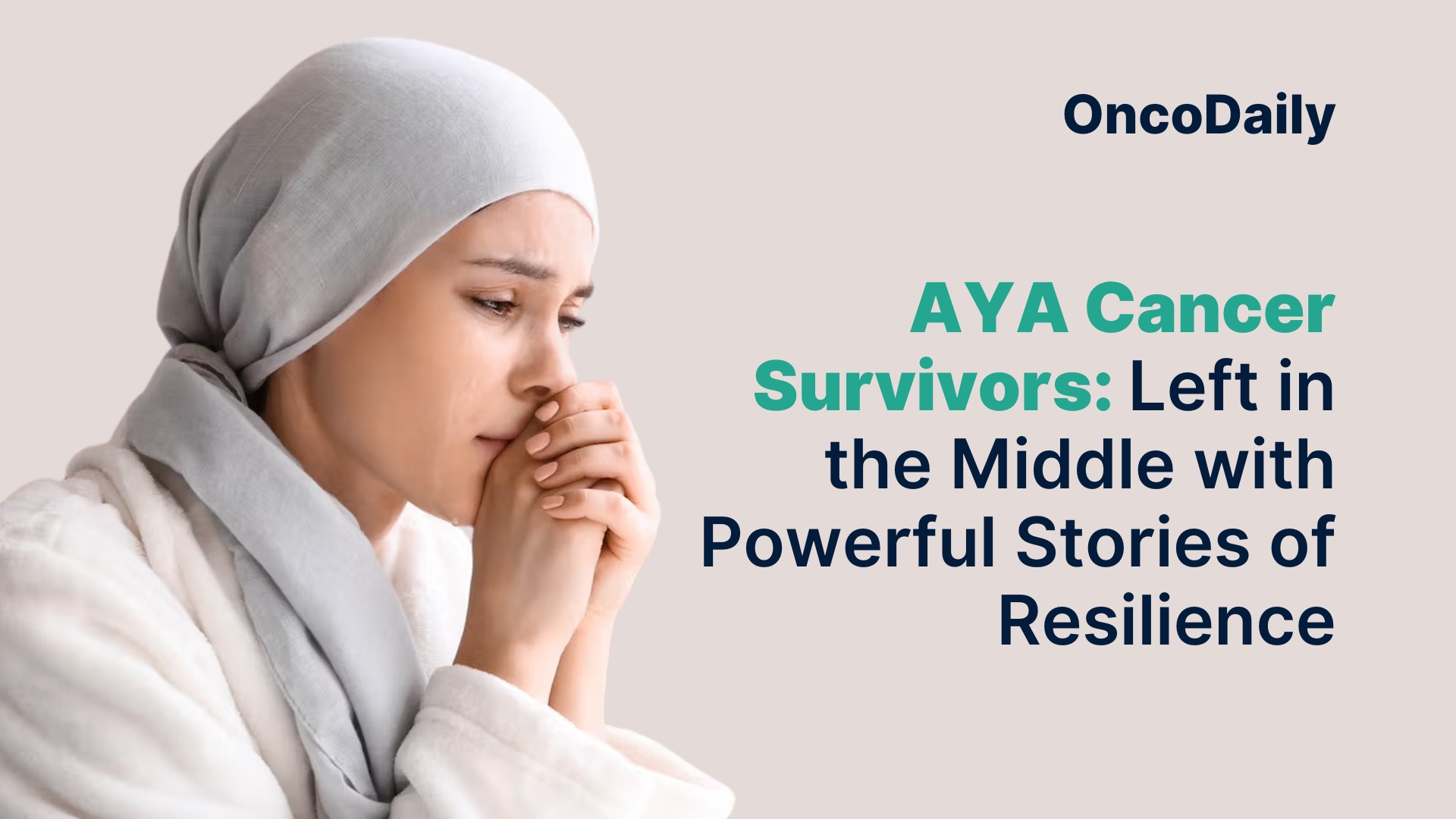In April, the oncology community shines a spotlight on the unique challenges faced by Adolescents and Young Adults (AYA) with cancer. AYA Cancer Awareness Week—typically observed in the first week of April—aims to bring visibility to the specific medical, emotional, and psychosocial needs of individuals diagnosed with cancer between the ages of 15 and 39.
At OncoDaily, we’re proud to amplify the voices of this community and join the global effort to close the gap in awareness, research, and care.
What is AYA Cancer?
While most people are familiar with pediatric and adult cancers, AYA cancer sits in a gray area. Individuals in this age bracket face distinct challenges:
-
Biologically unique cancers such as Hodgkin lymphoma, sarcomas, testicular cancer, thyroid cancer, and certain leukemias are more prevalent.
-
Many AYAs are misdiagnosed or diagnosed late, often because cancer isn’t typically suspected in young people.
-
AYA patients are less likely to be enrolled in clinical trials than pediatric or older adult patients.
-
Treatment settings may not be designed for their age-specific needs—either too pediatric or too geriatric.
AYA Cancer Awareness Week shines a light on these disparities and drives change.
Origins and Purpose of AYA Cancer Awareness Week
The week was established by AYA cancer advocacy groups and healthcare professionals to:
-
Raise awareness about the unique biology and care needs of AYAs with cancer.
-
Highlight the gaps in access to age-appropriate care and clinical trials.
-
Promote collaboration across pediatric and adult oncology systems.
-
Celebrate the resilience of AYA cancer survivors.
-
Encourage investment in research, survivorship programs, and mental health support for this age group.
It’s also a time to support organizations, caregivers, and healthcare teams working tirelessly to ensure that no young person faces cancer alone or unsupported.
Life in the In-Between: Navigating the Unspoken Struggles
AYAs often experience a deep sense of disconnection during and after treatment. Many feel caught between two worlds: too old for pediatric support systems, yet too young for adult ones.
This “in-between” stage presents real barriers:
-
Limited peer connection—AYA patients may not meet others their age while undergoing treatment.
-
Loss of independence—Education, careers, dating, and parenthood are often put on hold.
-
Mental health strain—Fear of recurrence, body image issues, fertility concerns, and identity crises are common.
Addressing these issues requires dedicated AYA programs, something still missing in many hospitals and cancer centers globally.
The Mental and Emotional Weight of Survival
AYA survivors are often hailed as “lucky,” but survival comes with its own set of challenges:
-
Up to 40% of childhood and AYA cancer survivors experience symptoms of depression.
-
Nearly 75% report PTSD-like symptoms, especially those who undergo intensive treatment or lose peers to cancer.
-
Many face “survivor’s guilt”, long-term side effects, or live with ongoing uncertainty about their health and future.
Mental health support, survivorship counseling, and access to peer networks aren’t just optional—they are essential to long-term healing.
What the AYA Community Needs
To support AYAs more meaningfully, we need:
- Increased enrollment in clinical trials for AYA patients
- Integrated care models that bridge pediatric and adult oncology
- Fertility preservation and reproductive health resources
- Dedicated survivorship care plans and transition programs
- Peer support spaces, mentorship, and advocacy training
- Investment in AYA-specific cancer research and data collection
The AYA community isn’t asking for special treatment—just equity in a system that often overlooks their needs.
Your Voice Matters—Let’s Keep It Going
AYA Cancer Awareness Week is a chance to be loud for those often unheard. Share their stories. Lift their voices. Listen, learn, and lead change.
And if this story moved you, don’t let it stop here. Share it. Talk about it. Reach out to someone who might need to feel seen.
For more real stories, advocacy, and oncology updates—follow OncoDaily. We’re here to keep the conversation going, every day.
By: Md Foorquan Hashmi, MD, Sr. Editor, OncoDaily: India Bureau
